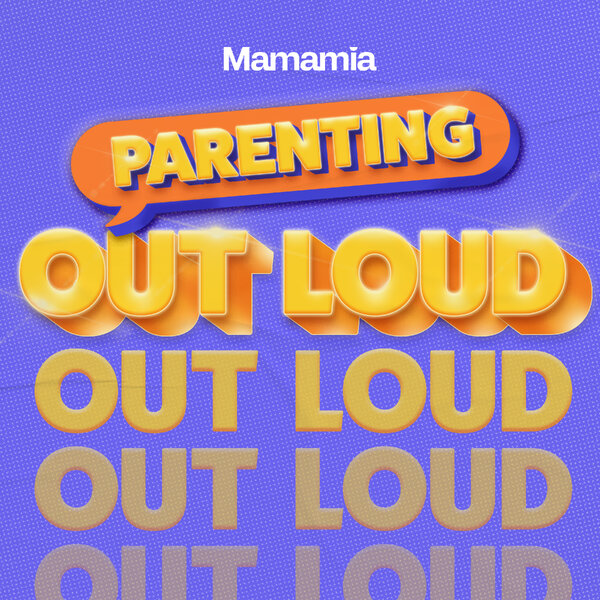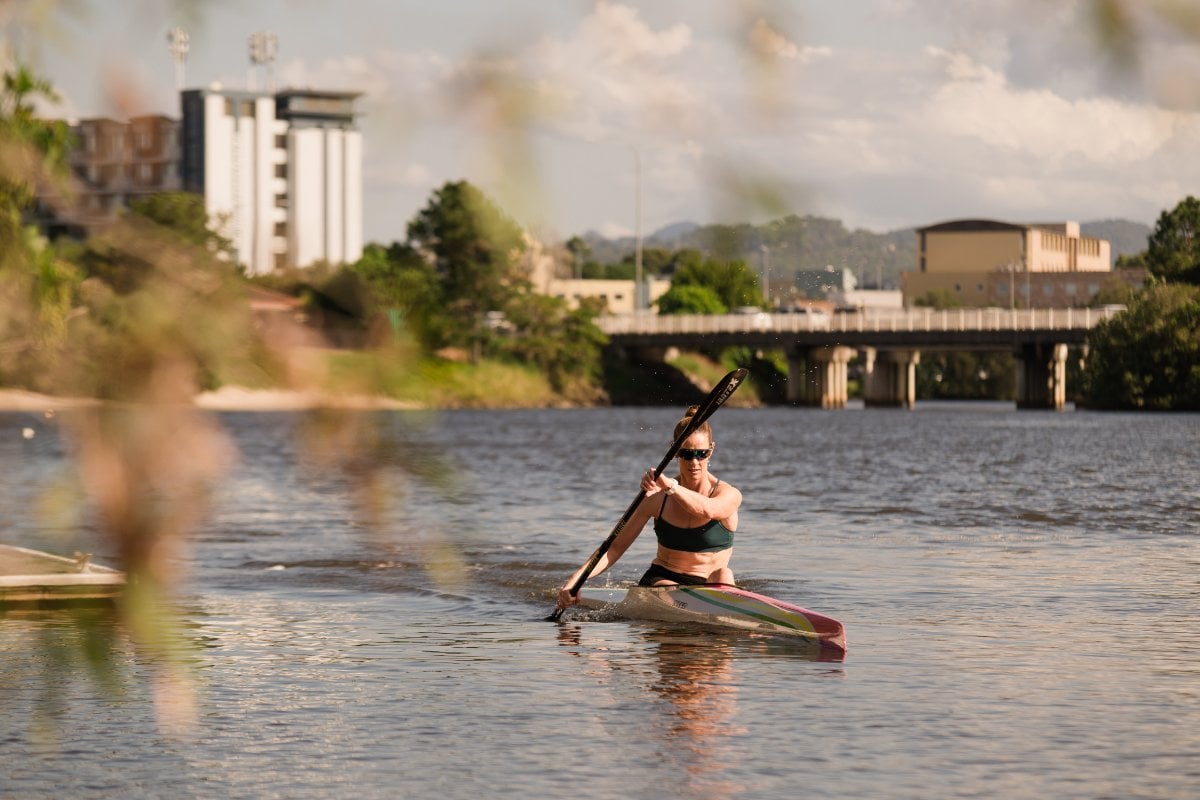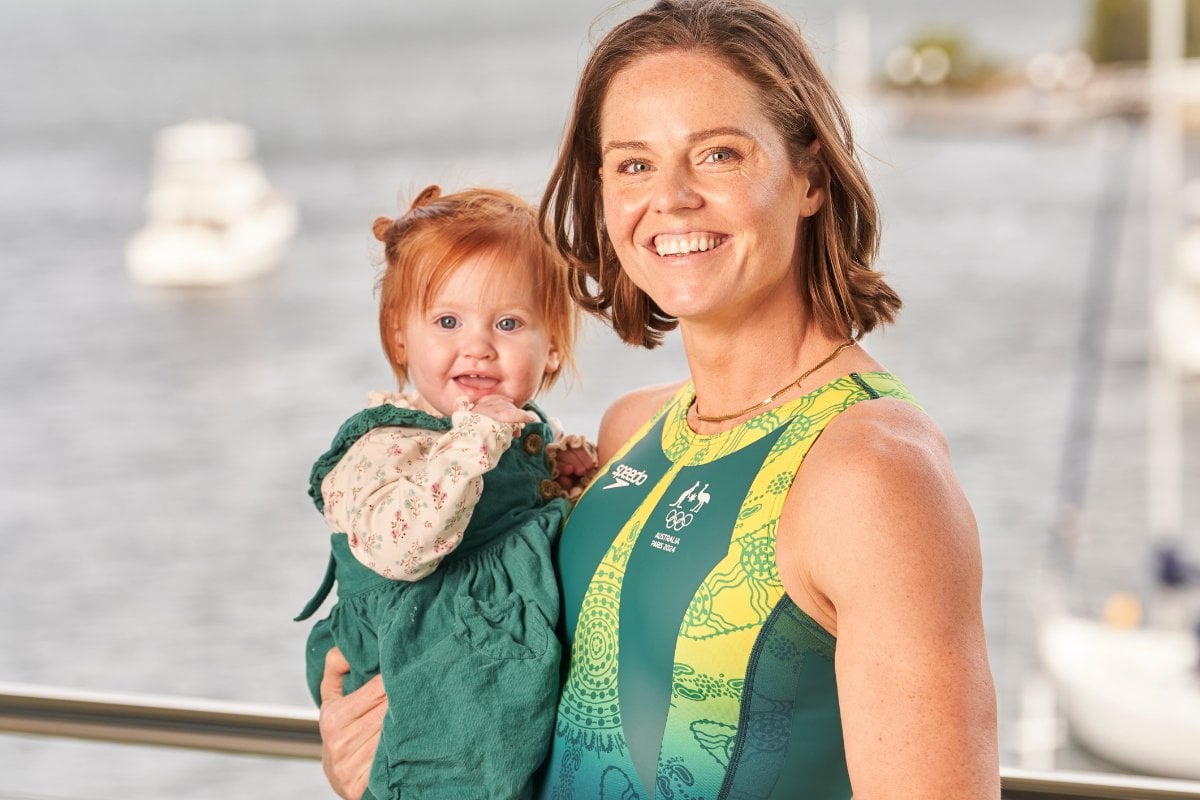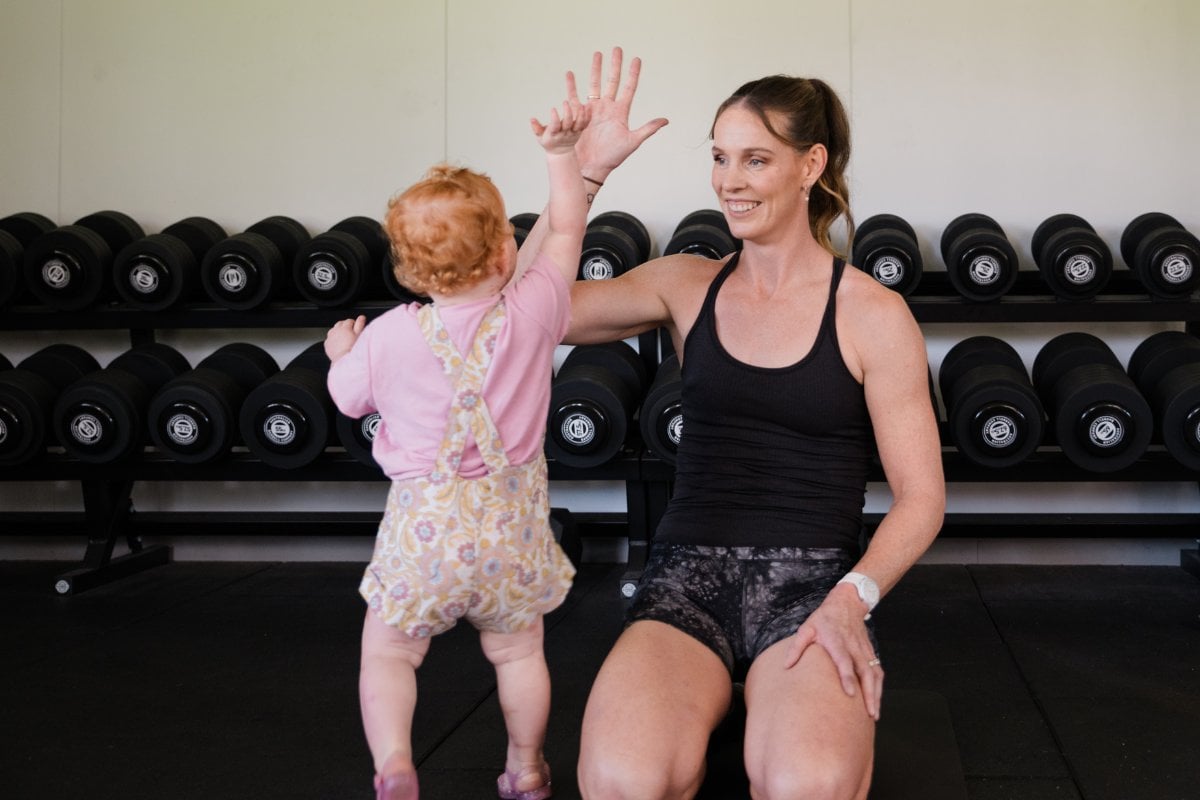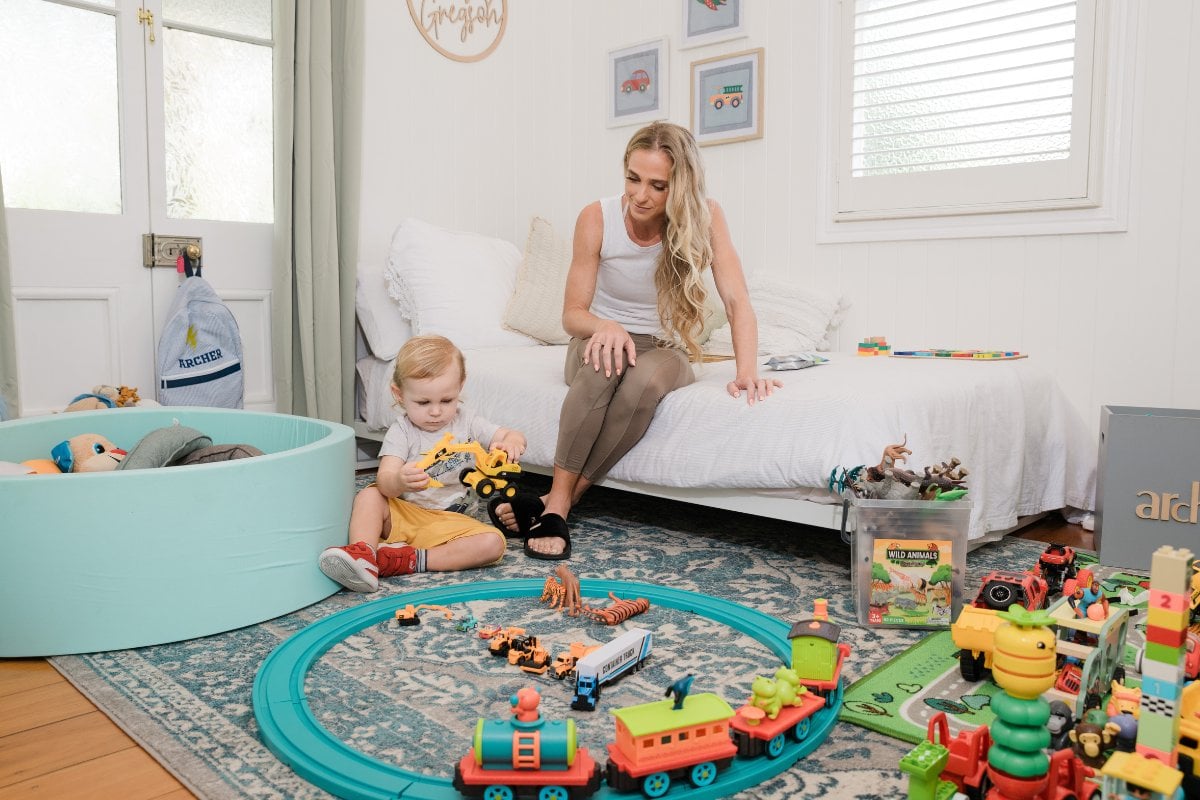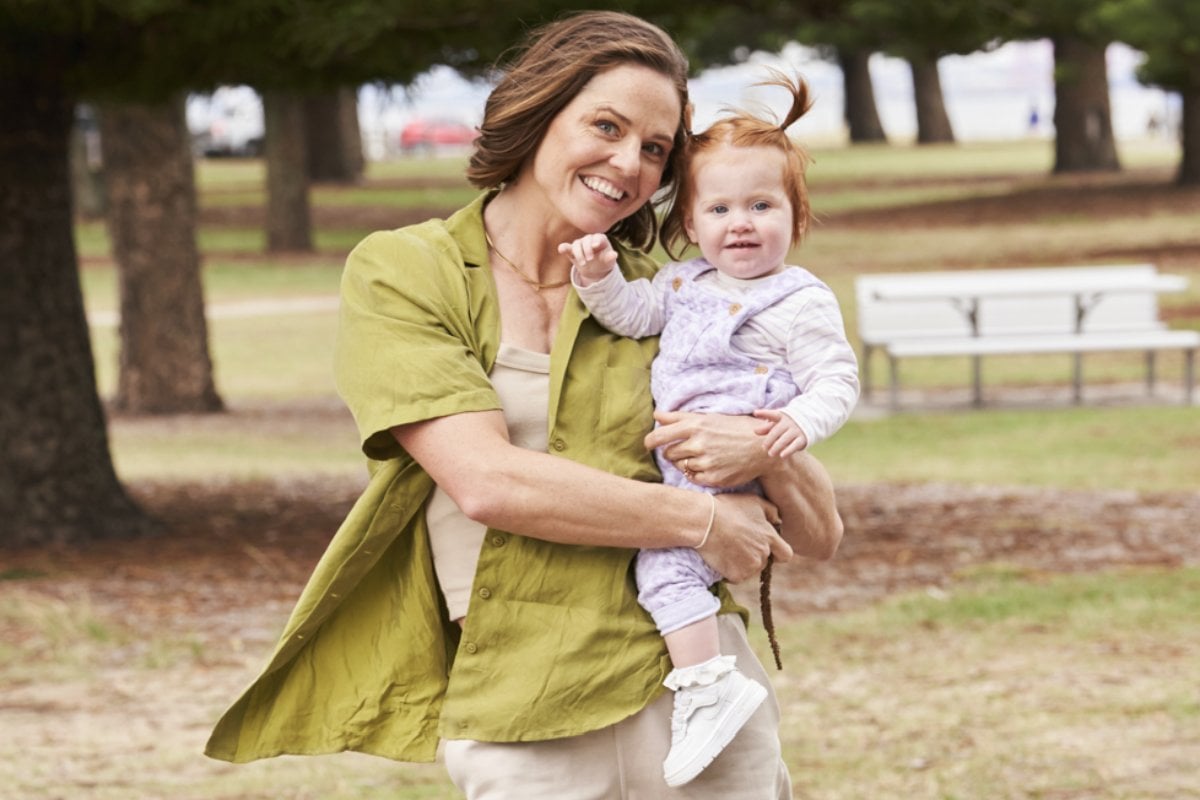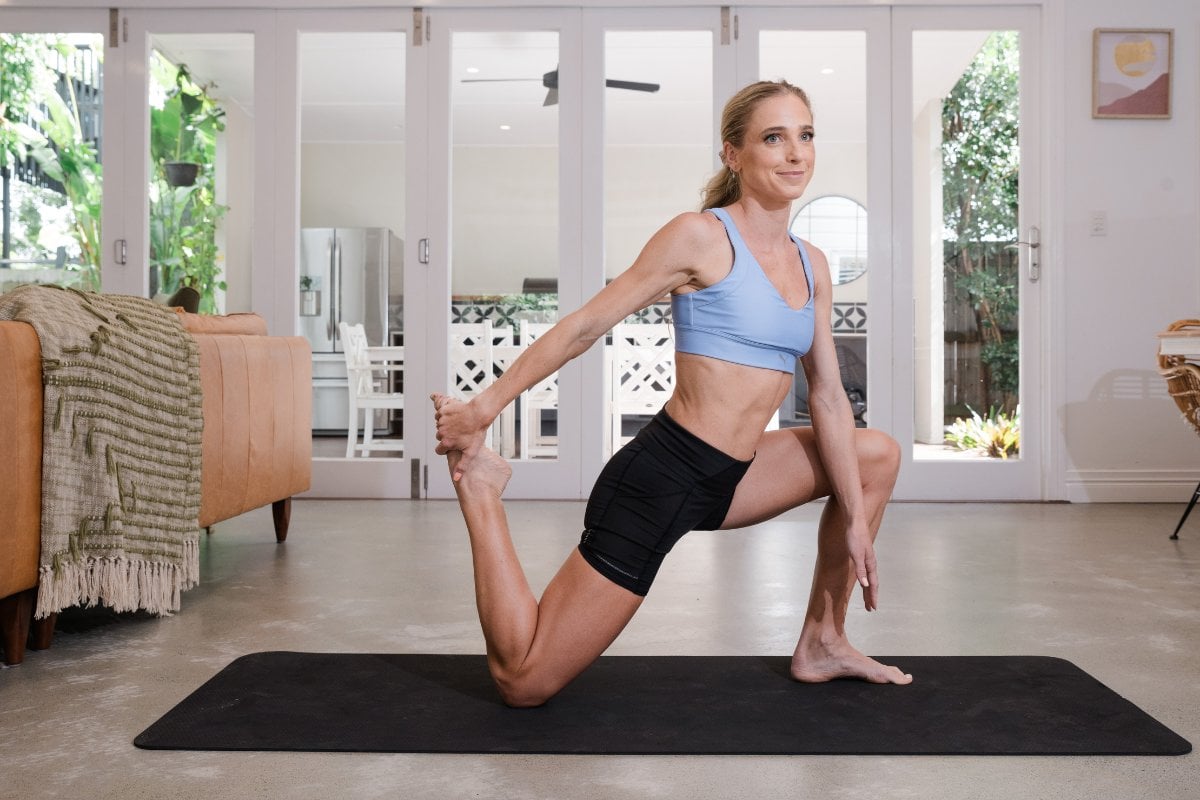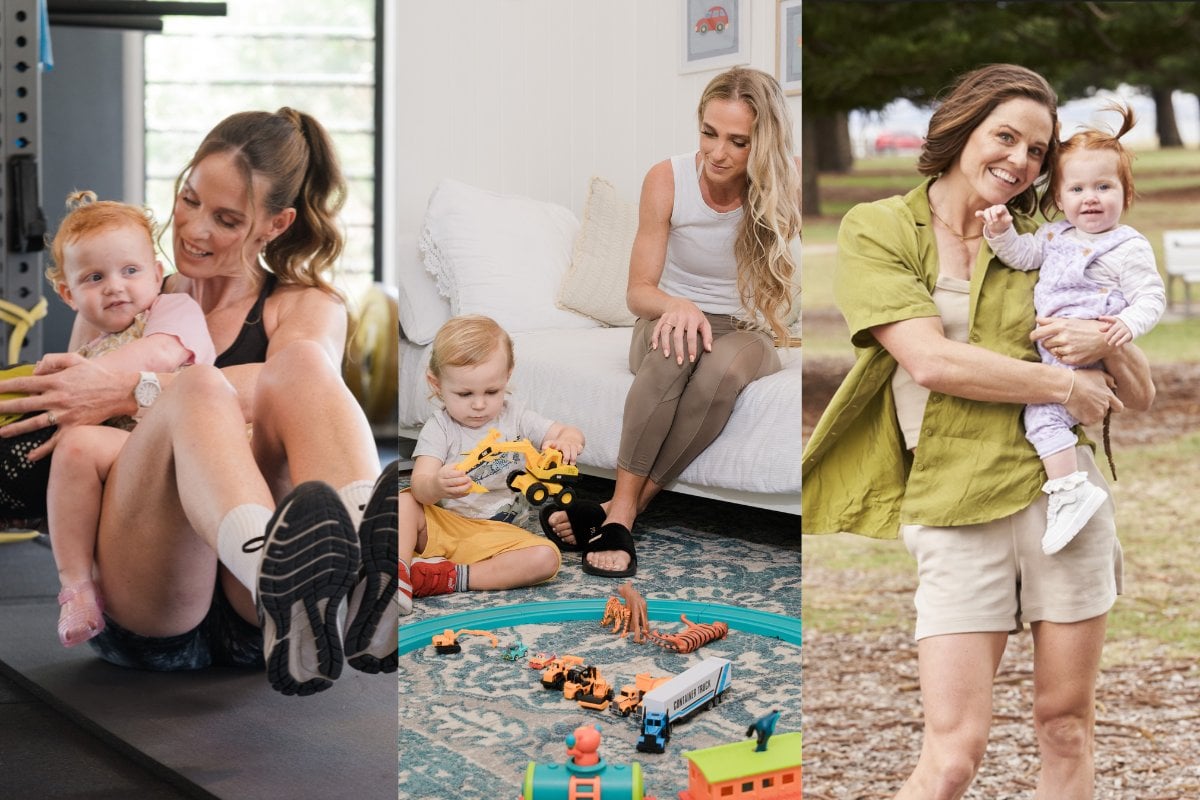
Watching the Olympics it's hard to escape the persistent thought, 'How on earth do these people do it?' Every time we watch another Aussie push themselves to the extreme for the gold, the thought crosses our mind.
But what's even more interesting is when that athlete hasn't been able to dedicate every waking minute to their own success, but instead had to put someone else first. Specifically, a newborn baby.
It takes years to reach an elite Olympic level in sport, and successful women then face a Catch-22. Continue in the 'sweet spot' of their sporting success, or take time out (and the many physical changes that come with it) in order to start a family.
Resilient as always, Australian female Olympians are proving that choosing to have a baby doesn't mean automatic retirement or missing an Olympics.
Water polo player Keesja Gofers' baby will be 16 months old at the Paris Olympics, while marathon runner Genevieve Gregson and canoe sprinter Alyce Wood's respective children will be two-years-old at the Paris Olympics.
The Bellamy's Organic ambassadors and Olympians sat down with Mamamia to share how they are making being mum-athletes work, and what it is really like to be training for the Olympics when you have a newborn.
Olympians begin training relatively soon after birth.
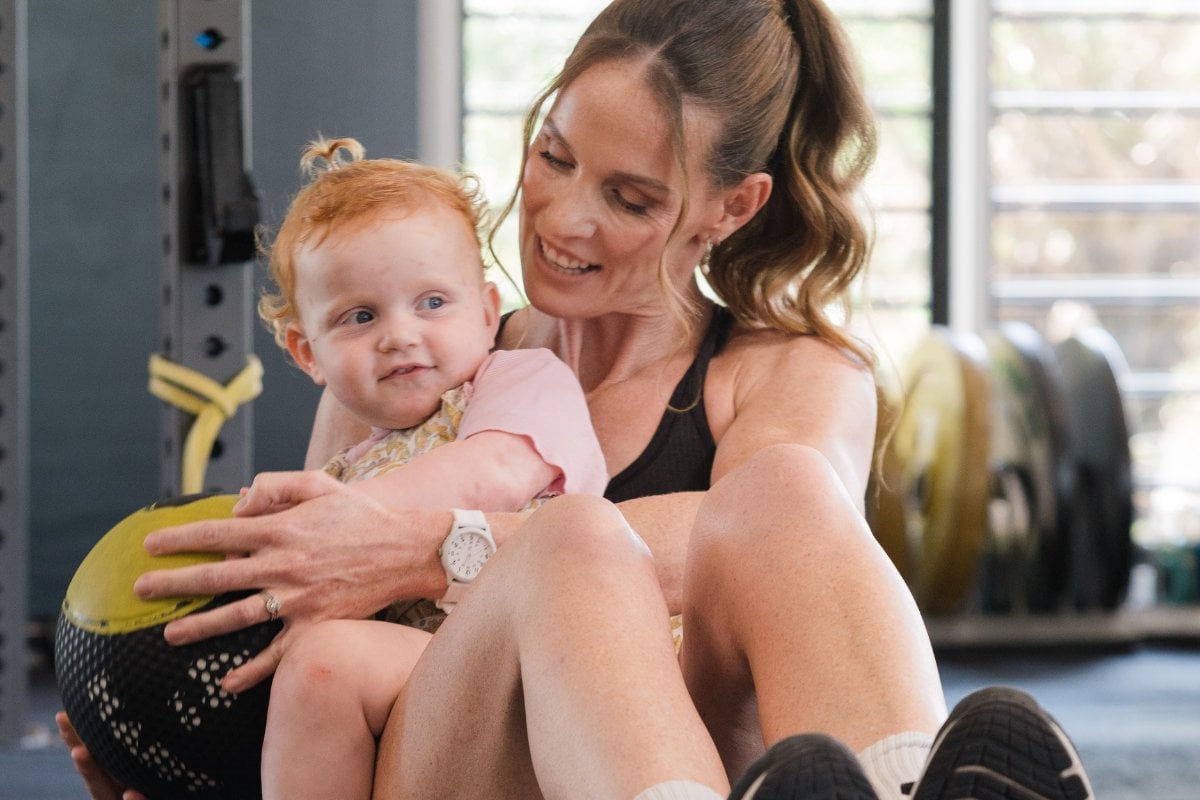 Alyce Wood and her little Florence. Image: Jade Ferguson.
Alyce Wood and her little Florence. Image: Jade Ferguson.

